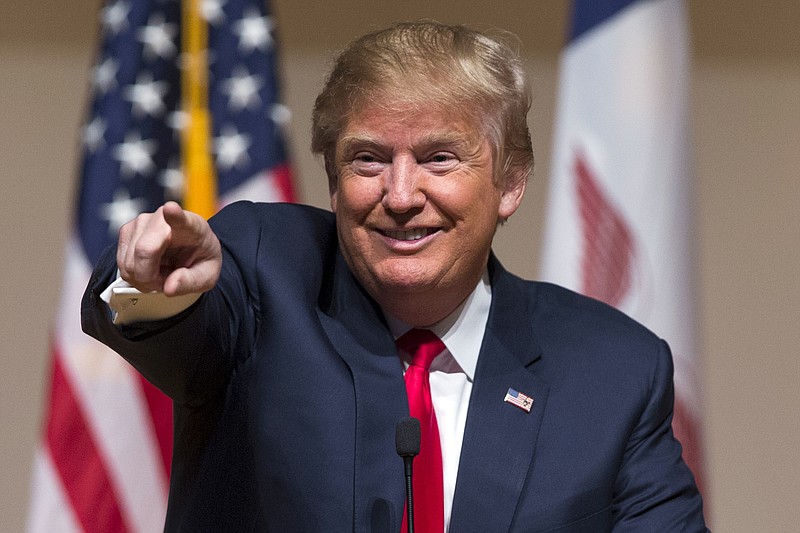Concerns of Americans
Most frequently mentioned concerns Americans want the government to handle in 2016:› Terrorism — 34 percent› Health care — 31 percent› Immigration — 29 percent› Education — 25 percent› Unemployment — 24 percentECONOMIC CONCERNS› Unemployment — 24 percent› General economy — 20 percent› Poverty — 13 percent› Taxes — 13 percent› Budget deficit — 12 percentDOMESTIC CONCERNS› Health care — 31 percent› Education — 25 percent› Environment/climate change — 18 percent› Gun issues — 15 percent› Income equality — 8 percent› Racial issues — 8 percent› Welfare reform — 7 percent› Crime — 6 percent› Other domestic issues — 6 percent› Infrastructure — 5 percent› Policing issues — 5 percent› Social Security — 5 percent› Veterans issues — 5 percentSource: AP - NORC Center
A new survey indicates most Americans - 61 percent - have little to no confidence in the federal government to solve what they believe are the country's most pressing problems.
What's particularly telling, according to the Associated Press-NORC Center for Public Affairs Research survey, is there is no statistical difference between the percentages of Republicans and Democrats who hold those feelings.
Who could blame them?
The past seven years, after all, have seen a presidential administration govern against the will of a majority of the people and an opposition Congress that was elected to put the brakes on that type of governing appear powerless to stop it.
That same time period has seen an acceleration in illegal immigration, a presidential administration declare it would not uphold laws to address illegal immigration and the expenditure of billions of dollars to assist those breaking the law.
The era has seen marriage laws turned on their head, the exposure of a government-subsidized agency selling fetal tissue, the implementation of a failed health care system, and a rise in domestic terrorism and mass murder.
The issues respondents most often mentioned in the AP-NORC survey that need addressing are terrorism, health care, immigration, education and unemployment.
The list must come as a surprise to the Obama administration because the president has as much as said he has solved health care with the Affordable Care Act, immigration with his executive orders to allow illegals to stay in the country for a longer period, and unemployment by getting the unemployment rate down to around 5 percent.
Terrorism and education, even the administration would admit, are works in progress.
However, the voters don't see it that way, which gives rise to viable presidential candidates who would be outliers in other years.
One week before the Iowa caucuses kick off the presidential primary season, businessman and reality television show host Donald Trump - who has previously held positions more like Democrats - leads most national Republican polls. Bombastic, egotistical and rude, he nevertheless speaks to the importance of the items cited by respondents in the AP-NORC survey.
He wants to deport all illegal immigrants, temporarily ban any type of Muslim immigration, get rid of the Affordable Care Act, and, vaguely, "make America great again."
On the other side of the aisle, socialist U.S. Sen. Bernie Sanders, I-Vt., is giving better positioned, better financed former Secretary of State Hillary Clinton a run for her money in Democratic polls. Septuagenarian, grumpy and willing to put the U.S. in mounds of additional debt with his promises, he nevertheless resonates with voters who want to the government to finance additional aspects of their lives, several of which are mentioned in various AP-NORC survey lists.
He would like to make college tuition free, create a completely government-run health care system, raise taxes to fund those and other priorities, and, vaguely, create "a future to believe in."
In other words, considering both outlier presidential candidates and the survey list, Americans don't see those problems solved, don't believe in the solutions currently being posed by the president or by Congress, and don't believe the conventional candidates in the race are speaking to those problems.
The primaries have the ability to turn the polls on their heads, but it's clear that more than in any other presidential election in at least the past half century, voters of both parties are unwilling to settle for what is served up to them. They want candidates who think like they do, act on those thoughts and don't care what the other side says.
It should make for interesting political theater for the next 10 months.
